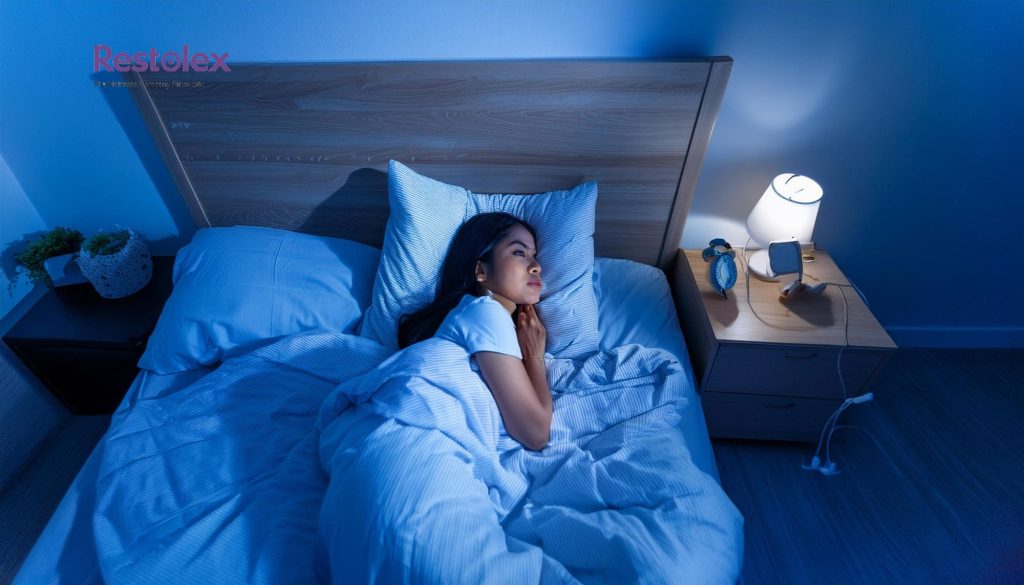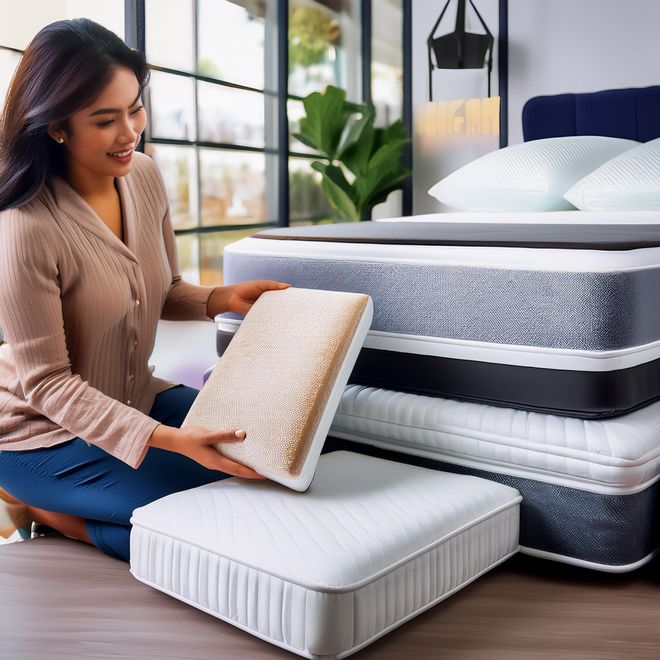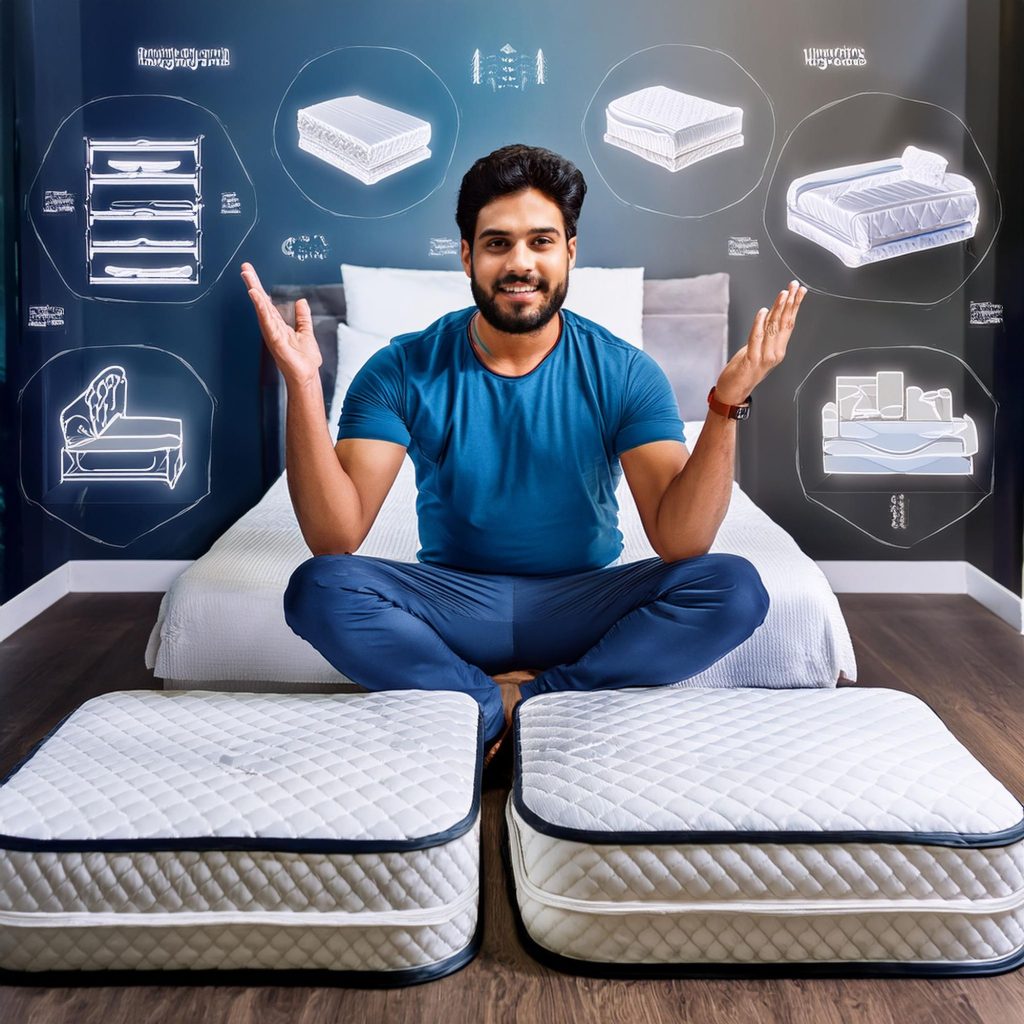The Role of Mattresses in Alleviating Sleep Disorders: What You Should Know

Sleep is a cornerstone of good health, yet millions of people struggle with sleep disorders that disrupt their rest and impact their quality of life. While various factors contribute to sleep problems, your mattress plays a crucial role in either exacerbating or alleviating these issues. At Restolex, we believe that the right mattress can make a significant difference in how well you sleep. In this article, we’ll explore the connection between mattresses and sleep disorders, and how choosing the right one can help you achieve a more restful night.
Understanding Sleep Disorders
Sleep disorders are conditions that affect the quality, timing, and amount of sleep, leading to daytime distress and impaired functioning. Common sleep disorders include:
- Insomnia: Difficulty falling asleep or staying asleep.
- Sleep Apnea: A condition characterized by pauses in breathing during sleep, often accompanied by snoring.
- Restless Legs Syndrome (RLS): An uncontrollable urge to move the legs, usually due to discomfort, which worsens at night.
- Chronic Pain-Related Sleep Issues: Conditions like arthritis or fibromyalgia that cause pain, making it hard to sleep.
- Narcolepsy: A neurological disorder that affects the brain’s ability to control sleep-wake cycles.
While treatment for sleep disorders often involves medical intervention, the right sleep environment including your mattress can play a supportive role in managing these conditions.
How the Right Mattress Can Help
1. Improving Sleep Quality
For those with sleep disorders, quality of sleep is often compromised. A mattress that supports proper spinal alignment and offers comfort can significantly improve sleep quality by reducing discomfort and minimizing disturbances during the night.
- Memory Foam: Memory foam mattresses are known for their ability to contour to the body, which can help alleviate pressure points and promote better circulation. This can be particularly beneficial for people with chronic pain, as it reduces the tossing and turning that often accompanies discomfort.
- Innerspring and Hybrid: These mattresses provide a balance of support and comfort, with added breathability. For those who suffer from overheating, which can disrupt sleep, a hybrid mattress with cooling technology may offer relief.
2. Reducing Sleep Apnea and Snoring
Sleep apnea and snoring are often worsened by poor sleeping posture, which can be influenced by your mattress. A mattress that properly supports the head, neck, and spine can help keep airways open, reducing the likelihood of snoring and sleep apnea episodes.
- Adjustable Beds: Pairing your mattress with an adjustable bed frame can further enhance sleep for those with sleep apnea. By elevating the head slightly, you can reduce airway obstruction and improve breathing.
3. Easing Symptoms of Restless Legs Syndrome
Restless Legs Syndrome can make it difficult to find a comfortable position, leading to frequent movement and disrupted sleep. A mattress that reduces pressure points and promotes relaxation can help alleviate some of the discomfort associated with RLS.
- Pressure-Relieving Materials: Mattresses made with memory foam or latex can provide a cradling effect that reduces pressure on the legs, potentially easing RLS symptoms.
4. Supporting Pain Management
Chronic pain is a common cause of sleep disturbances. The right mattress can help manage pain by providing targeted support and reducing pressure on sensitive areas.
- Zoned Support: Some mattresses are designed with zoned support systems, offering firmer support where you need it (such as the lower back) and softer cushioning for areas like the shoulders and hips. This can be especially beneficial for individuals with back pain or arthritis.
5. Promoting a Healthy Sleep Environment
A mattress’s ability to maintain a cool, dry, and hypoallergenic environment can also impact sleep quality, particularly for those with allergies or temperature regulation issues.
- Cooling Technology: Mattresses with cooling gel, breathable covers, and moisture-wicking materials can help maintain a comfortable sleeping temperature, which is crucial for uninterrupted sleep.
- Hypoallergenic Materials: For allergy sufferers, a mattress made from hypoallergenic materials can reduce the presence of dust mites, mold, and other allergens, contributing to a healthier sleep environment.
Choosing the Right Mattress for Your Needs
When selecting a mattress to help alleviate sleep disorders, consider the following:
- Personal Comfort: Choose a mattress that feels comfortable to you. Whether you prefer memory foam, latex, or a hybrid, the mattress should provide a balance of support and comfort that suits your sleep style.
- Sleeping Position: Your preferred sleeping position (side, back, stomach) should guide your choice. Different mattresses offer varying levels of support and pressure relief that align with specific sleeping positions.
- Warranty: Opt for a mattress that comes with a generous warranty. This allows ensure it meets your needs over the long term.
- Expert Consultation: If you’re unsure about the best mattress for your sleep disorder, consult with a sleep specialist or one of our Restolex sleep experts who can guide you based on your specific needs.


Conclusion
Sleep disorders can have a profound impact on your life, but the right mattress can be a powerful tool in managing these conditions. At Restolex, we’re dedicated to helping you find the perfect mattress that not only supports your sleep health but also enhances your overall well-being. Remember, a good night’s sleep starts with a mattress that meets your unique needs.
Wake up refreshed and ready to take on the day with Restolex.
Newsletter Sign Up
Join our community to receive exclusive updates, sleep tips, and special offers directly in your inbox. Stay informed and be the first to know about our latest products and promotions.

Contact Us
- 9/1, Ashokapuram, Industrial Suburb, Yeshwanthpur, Bengaluru-560022, India
- care@restolex.com
-
+91-8750054466
+91-8123018558
